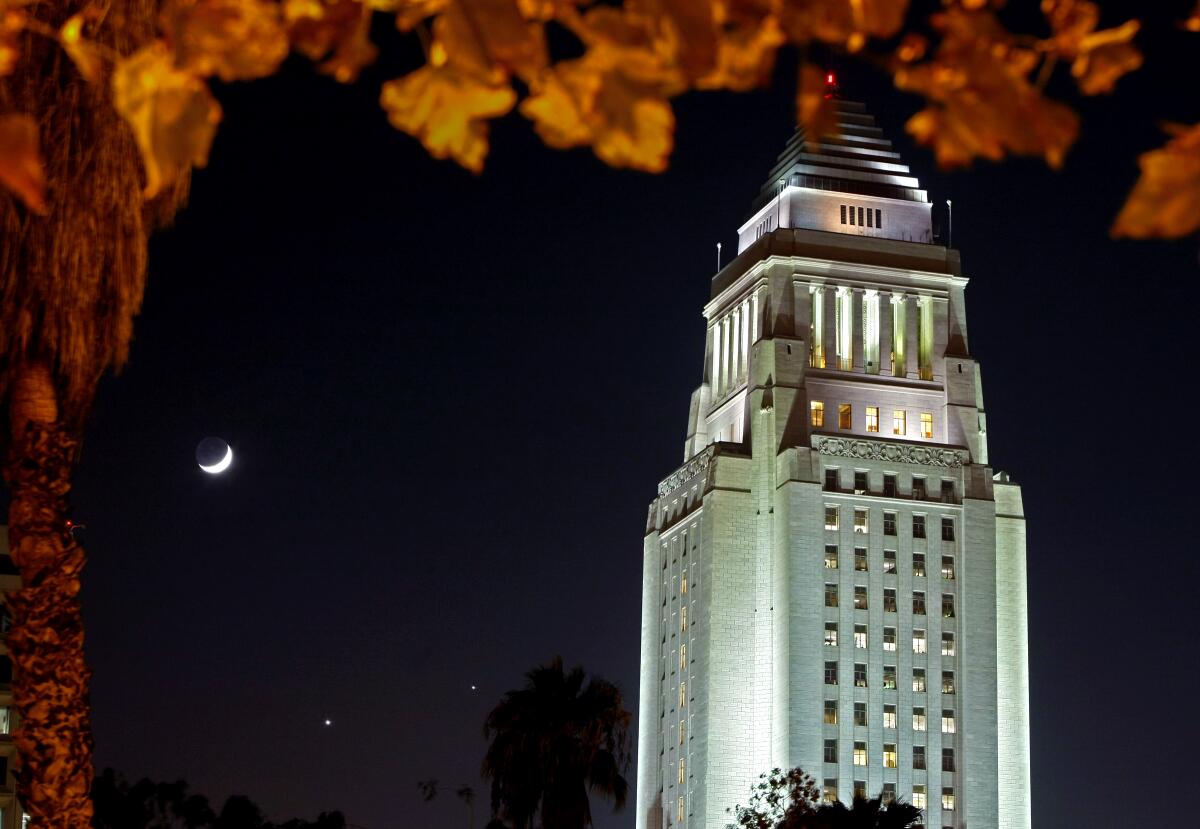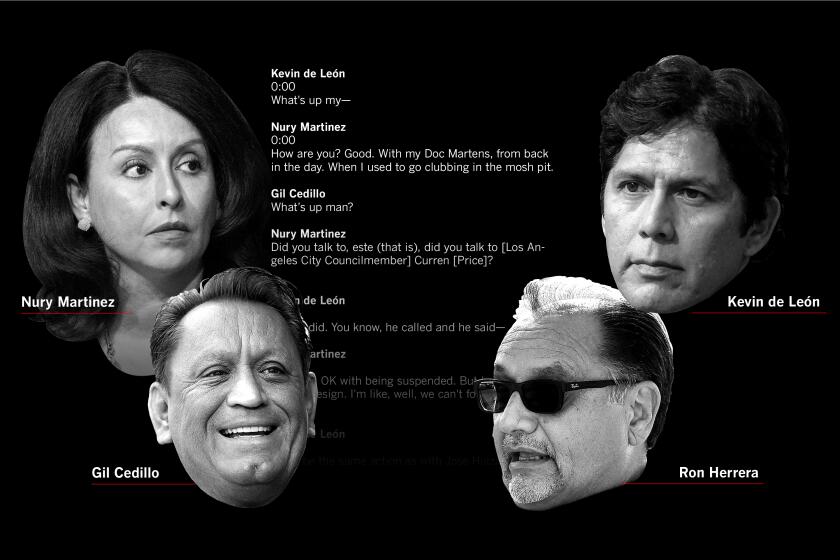Independent reform group recommends expanding L.A. City Council to 25 members

- Share via
For the past half-year, a small group of leading scholars has been quietly meeting to envision a less broken version of Los Angeles city government.
The L.A. Governance Reform Project is an academic supergroup of sorts, with members from institutions across the region. Its mission is complex, but also quite straightforward: research and develop an unbiased set of government reform proposals to present for consideration by the City Council and the wider public.
The group started convening after a leaked audio recording upended City Hall last fall, exposing Los Angeles City Council members and a powerful labor leader scheming to consolidate power during the city’s decennial redistricting process. The raw and racist remarks revealed in the recording capped years of scandal at L.A. City Hall and catalyzed widespread support for government reform, particularly around the city’s redistricting process.
“We are not elected officials. We are not folks who are kind of standing up at the protest. … We realized one of the things that was needed was a truly independent analysis” free from the influence of the council or other voices, said former USC political science and international relations department chair Ange-Marie Hancock.
Hancock, who now leads Ohio State University’s Kirwan Institute for the Study of Race and Ethnicity, is one of the project’s two co-chairs, along with UCLA Luskin School of Public Affairs professor Gary Segura.
A bombshell recording has thrown L.A. politics into chaos. What was really being discussed? L.A. Times reporters and columnists pick it apart, line by line.
Most significant governance reforms necessitate changes to the city charter, which require a vote of the public. The City Council is widely expected to put a government reform proposal on the 2024 ballot that includes independent redistricting, though the details of what that will look like remain very much up for debate.
Released Thursday, the L.A. Governance Reform Project’s interim recommendations include expanding the number of City Council seats to reduce district sizes, implementing an independent redistricting commission and beefing up the city’s ethics apparatus. The group plans to gather community and stakeholder input during the summer before finalizing its recommendations and presenting them to the council in the fall.
They recommend expanding the council to 25 members from 15, with 21 members elected by district and four at-large members. The number of council districts has not changed since 1925, and each council member represents about 260,000 people — more than any other city in the country.
The report recommends that the city establish two independent redistricting commissions, each with 17 residents, to draw district lines for the city of Los Angeles and the Los Angeles Unified School District, respectively. Under the city’s current redistricting system, the council has final say over district lines, and elected officials appoint members to the redistricting panel who essentially act as their proxies. An independent commission would take that power away from the council.
The recommendations are aimed at fostering accountability, reducing corruption and promoting positive relations among different groups in a diverse city, according to the draft report.
The academic group is hardly alone in their work. Ahead of potentially putting reforms on the 2024 ballot, the council’s Ad Hoc Committee on City Governance Reform has hopscotched around the city in recent months, holding hearings about independent redistricting and taking public testimony.
During those meetings, Council President Paul Krekorian has occasionally referenced the forthcoming academic report and said his committee would be taking it into account before making any policy recommendations.
The ad hoc committee — which was created by Councilmember Nithya Raman last fall and is now chaired by Krekorian — will reconvene in August after the council’s July recess and is expected to decide on reform recommendations to send to the full council by Sept. 18, according to Krekorian’s office.
The academic report strongly recommends that a package of governance reforms be placed on the November 2024 ballot, rather than the March primary ballot, to reach a larger electorate.
Efforts to mandate independent redistricting are also being pushed at the state level, along with a host of other grassroots reform efforts at the local level.
“Such a wave of reform energy does not occur very often. Sometimes decades pass between reform eras,” the group writes in the introduction to its report. “Los Angeles is in the midst of one such moment now, and it is not to be taken for granted.”
Along with Segura and Hancock, the team was led by Raphael Sonenshein (former director of the Pat Brown Institute for Public Affairs at Cal State L.A.), Sara Sadhwani (a Pomona College politics professor who also served on the California Citizens Redistricting Commission), Boris Ricks (director of the Center for Southern California Studies at Cal State Northridge) and Fernando Guerra (director of the Center for the Study of Los Angeles at Loyola Marymount University).
Their work was backed by the Eli and Edythe Broad Foundation, the Weingart Foundation and the California Community Foundation.
More to Read
Sign up for Essential California
The most important California stories and recommendations in your inbox every morning.
You may occasionally receive promotional content from the Los Angeles Times.












